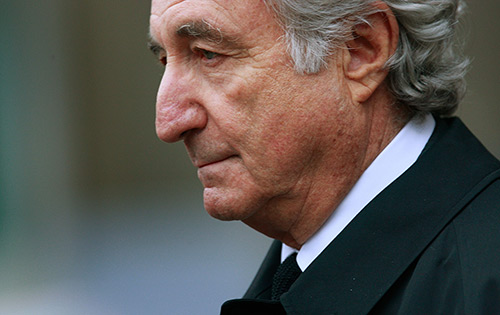In contemporary society, the relentless pursuit of material wealth often engenders a deep-seated discontent and malaise. The Bahá’í teachings proffer a profound antidote to this pervasive materialism, advocating for a spiritually enriching lifestyle. This article illuminates the Bahá’í perspective on “Occupying Materialism” as a clarion call for spiritual action, elucidating the diverse facets of this doctrine and its implications for personal and communal development.
Understanding Materialism in a Bahá’í Context
Materialism, at its core, denotes an overemphasis on material possessions and a neglect of spiritual values. In the Bahá’í Faith, materialism is regarded as a significant obstacle to human development and societal progress. Bahá’ís maintain that while material advances are essential, they must be harmoniously balanced with spiritual growth. This creates a holistic framework that encourages individuals to transcend mere physical needs and delve into the profound realms of spiritual fulfillment.
The Essence of Spiritual Action
“Spiritual action” involves a conscious decision to prioritize spiritual values in one’s life. For Bahá’ís, this means actively engaging in actions that reflect the teachings of Bahá’u’lláh, the founder of the Bahá’í Faith. These teachings exhort followers to cultivate virtues such as love, compassion, and service to humanity. Thus, spiritual action is not solely an individual pursuit; it encompasses community engagement and social transformation, emphasizing the interconnectedness of all people.
Reassessing Our Values
One of the primary tenets within the Bahá’í framework is the reassessment of personal values. This reflective process inspires individuals to critically evaluate what they prioritize in their lives. Consideration of spiritual principles can lead to a radical transformation in values—prioritizing contributions to society over the accumulation of wealth. Such introspection fosters an environment where altruism reigns over avarice, nurturing a collective ethos that champions community welfare.
Service as a Catalyst for Change
In the pursuit of spiritual action, service emerges as a cornerstone of Bahá’í teachings. Engaging in acts of service not only alleviates the woes of the less fortunate but also cultivates a sense of unity among diverse populations. Bahá’ís are encouraged to immerse themselves in community service initiatives that address pressing social issues, including poverty, education, and health care. This dynamic participation not only resonates with the principle of ‘nobility of service’ but also propagates the idea that true wealth lies in promoting the common good.
Fostering Community and Inclusivity
Central to constructing a society that effectively counters materialism is the element of community. Bahá’í teachings emphasize the significance of building inclusive communities where every individual feels valued. This inclusivity can be fostered through collaborative efforts that bridge cultural, racial, and economic divides. By engaging diverse groups, Bahá’ís can promote dialogue and understanding, fortifying social bonds that are essential for a thriving society.
The Role of Education
Education serves as a noteworthy pillar in the Bahá’í approach to combating materialism. The Bahá’í Faith posits that the foundation of a spiritually enlightened society lies in the education of its youth. By instilling spiritual principles alongside academic knowledge, future generations can be equipped not only with professional skills but also with a profound understanding of human rights and dignity. This dual focus on intellectual and spiritual growth engenders a new cadre of leaders who can navigate the complexities of modernity while remaining anchored in ethical values.
Aesthetic Appreciation and Spiritual Enrichment
Another dimension of “Occupy Materialism” is the enhancement of one’s life through aesthetic appreciation. Appreciating the beauty of nature, art, and creation strengthens one’s spiritual sensibilities and helps to cultivate an inner depth that material possessions cannot provide. The Bahá’í teachings advocate for the balance of material success with the contemplation of beauty, tranquility, and spirituality. Thus, engaging with beauty assists individuals in realizing that life’s greatest treasures often lie beyond the physical realm.
Promoting Justice and Equity
Integral to Bahá’í teachings is the notion of justice—both social and economic. Materialism often cultivates inequality, leading to societal fragmentation. The Bahá’í approach underscores the necessity of advocating for justice and equity. By addressing systemic barriers and promoting fair practices, Bahá’ís actively contribute to societal reform. This pursuit of justice not only creates a more equitable society but also reflects the divine attributes of righteousness and compassion advocated by Bahá’í principles.
Encouragement of Individual and Collective Transformation
The call to action against materialism, therefore, extends an invitation to both individual and collective transformation. Bahá’ís are encouraged to undergo personal spiritual development while simultaneously being vigilant in catalyzing societal change. The synergy between personal and communal transformation fosters a robust network of spiritual consciousness that ultimately seeks to elevate humanity.
Conclusion: A Holistic Paradigm
In an era dominated by materialistic desires, the Bahá’í teachings invite individuals to occupy a space that transcends the superficiality of material wealth. Through the advocacy of spiritual action, service, inclusivity, education, and justice, Bahá’ís embody a holistic paradigm that ensures the sustenance of both the material and spiritual realms. As this movement gathers momentum, it serves as a beacon of hope, illuminating a path toward a more equitable and spiritually enriched society.
